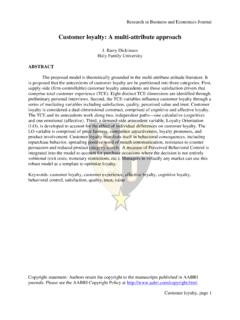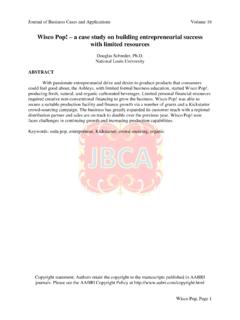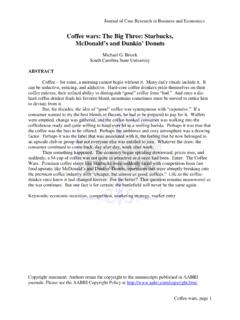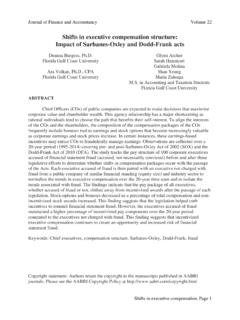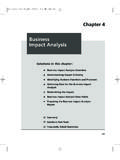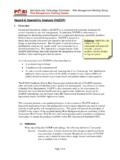Transcription of Management information systems and business …
1 Journal of Management and Marketing Research Management information systems and business decision making: review, analysis, and recommendations Srinivas Nowduri Bloomsburg University of Pennsylvania Abstract The role of Management information systems is described and analyzed in light of its capability for decision making. Decision making process and its impact on top level Management in a business organization is explained with an emphasis on automated decision making. Limitations and challenges of MIS are discussed and a set of six recommendations proposed for increasing the effectiveness of MIS in the decision making process. Keywords: information systems , Transactional Processing systems , TPS, Management information systems , MIS, Expert systems Management information systems and business decision making, Page 1.
2 Journal of Management and Marketing Research 1. Introduction information systems can be conceptualized in terms of three types of systems : Transactional Processing systems (TPS), Management information systems (MIS), and Expert systems . MIS has several subsets such as Decision Support systems and Executive information systems . The role of MIS in decision support is best discussed in the context of the subset referred to as Decision Support system (DSS). A DSS is a computer based system (an application program) capable of analyzing an organizational (or business ) data and then presents it in a way that helps the user to make business decisions more efficiently and effectively. It is basically an informational application which depends on the information already input while answering to a given query.
3 For example, a decision support system could provide: Comparative sales figures for one week/month and the next Projected revenue figures based on new product sales assumptions Consequences of different decision alternatives, given past experience Sometimes there is an overlap between the broad categories of IS and a DSS could be capable of presenting information graphically through an expert system or artificial intelligence (AI). Usually the DSS is used by all levels of people within a business organization. Top level Management uses DSS for strategic decisions, middle Management uses for tactical decision while first line supervisors use deploy it for day-to-day operational decisions. Therefore, the process of decision-making in any business is an inherently vital aspect not just for organizations but also for individuals who greatly rely on these decisions for their survival in the highly competitive arena of entrepreneurship (Al-Zhrani, 2010, ).
4 More importantly, Management information system (commonly abbreviated as MIS) has been an increasingly used tool in the institutionalization and making of decisions. DSS are a subset of MIS, for intelligent decision making. However, dispite the immense benefits that result from using MIS in decision making, some critics have, reportedly, been slowly but surely asserting that MIS poses surmountable detrimental effects to organizations and should thus be used sparingly or avoided if possible (Demetrius, 1996). According to Kumar (2006), in order to define MIS, it must be principally divided into the three facets that constitute it which are: Management , information , and systems . In furthering his ideas, Kumar simply defines Management as the process through which managers plan, organize, initiate and control operations within their businesses.
5 Essentially, a Management can only exist when there are subjects/ workers to be managed (Al-Zhrani, 2010, ;. The Maniac, ). Kumar also states that information generally refers to analyzed data. In other words, information (with regards to business ) results from data that is analyzed using business statutes, principles and theories advanced by various macroeconomists. Finally, system , according to Kumar, refers to A set of elements joined together for a common objective. More often than not, business systems normally consist of smaller systems known as subsystems which all function towards ensuring efficacy of the large systems . As a matter of fact, systems vary from one organization to another depending on the nature of organizational operations, size of the businesses and organizational priorities among many other salient factors.
6 Based on the foregoing definitions, Management information systems refers to a system that uses information in order to ensure apt Management of businesses. Fundamentally, all the facets of MIS run concomitantly in order to ensure overall efficiency of the whole system . Management information systems and business decision making, Page 2. Journal of Management and Marketing Research Failure in one part means overall failure for the other parts since they are all designed to function interdependently (Davenport & Short, 1990). Consequentially, a good Management of information systems leads to good decision- making in business just in the same way poor Management leads to poor decision making.
7 It is based on this foundational concept that this paper is going to circumspectly analyze the roles of Management systems in decision making. Notably, this study will be arranged as follows. The study will begin by giving a brief overview into the decision making process in businesses while establishing the point in which it links with MIS. From here, an expansive analysis and review will be done on the roles of MIS in improving decision making. This will then be followed by a mentioning of the questionable areas associated with MIS and decision making. After that, recommendations will be given to solve the underlying issues that result from the paper. Finally, a conclusion will be given to summarize the contents of the paper.
8 2. Main Discussion Role of MIS in Improving decision making Preliminarily, it is inherent to state that decision making is an integral part of any business (The maniac, ). This is because a majority of operations in an organization revolve around decisions made by the Management and other key stakeholders in the organization. And in order for decision to be made adequately, it is vital for there to be a good information system since decisions are based on information available. In relations to this, Jahangir (2005) states that based on the significant role that information plays in choice of decision to be made, organizations must ensure that they have a good Management information system .
9 As a notable general observation, a good MIS ensures good decision making just in the same way bad MIS propel the making of bad decisions. (2010) supports the above observation by saying that The quality of managerial decision-making depends directly on the quality of available information and the managers should therefore cultivate an environment that encourages the growth and viable sprouting of quality information . Essentially, before deciding on which MIS strategy to use, it is vital to ensure that the choice made is fully compatible with your current system . This will not only help in avoiding erratic choices but it will also save you the time and money that would have been otherwise wasted by that person (Rhodes, 2010; Jahangir, 2005).
10 In addition to that, it is noteworthy for the MIS strategy or tool used to be in line with the decisions that are to be made. In other words, there should be a connecting point between the decision to be made and the MIS to be used by individual or corporate business owners (Jarboe, 2005). As a key consideration, Management information systems is a highly complex and delicate arena that calls for a lot of caution to be taken by its managers. It is for this reason that it is recommendable for organizations to ensure that they carefully select the individuals who are placed to control the systems . The more cautious and professional a person is, the better the person gets an assurance of positive prospects of in MIS with regards to decision making and other related areas of business (Lingham, 2006).
